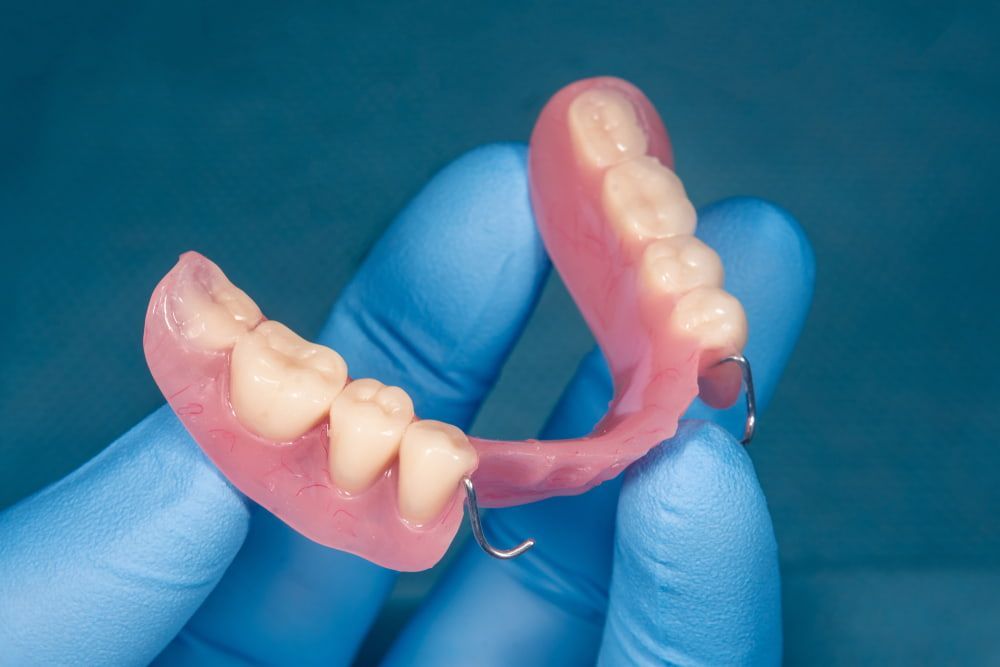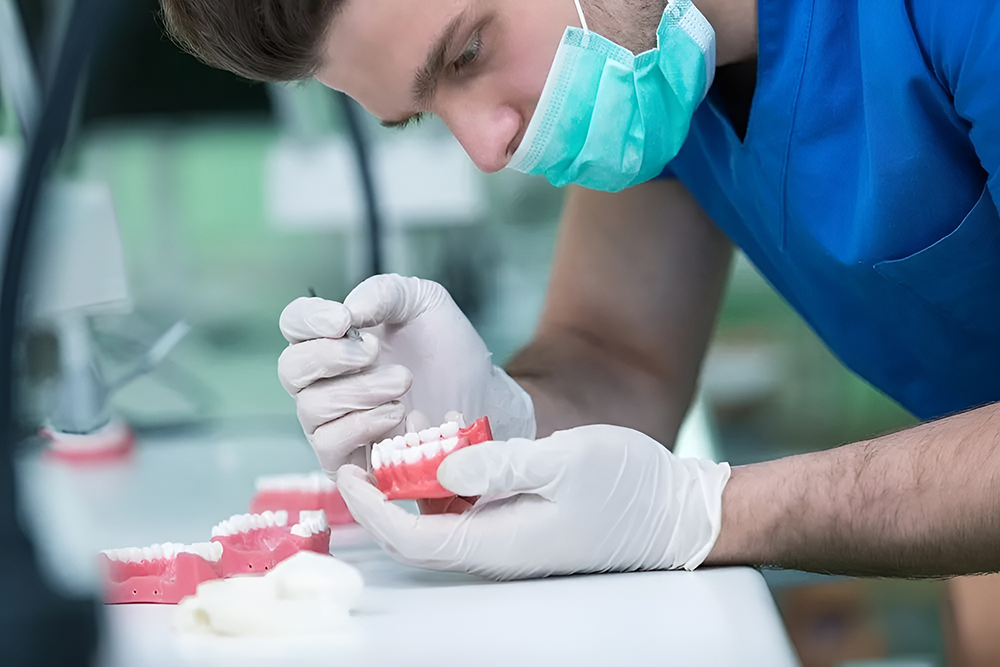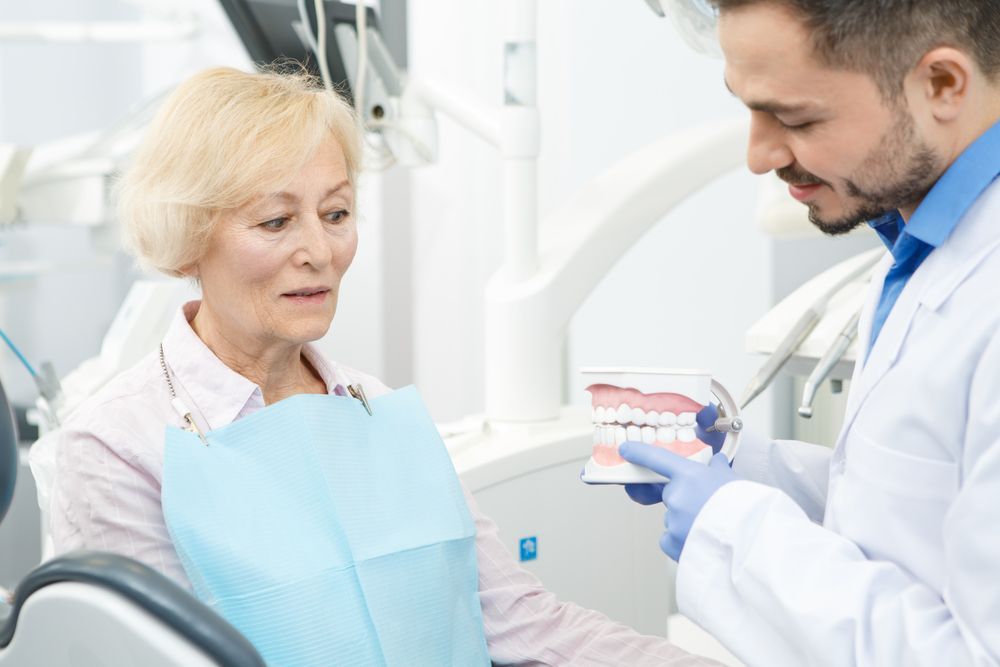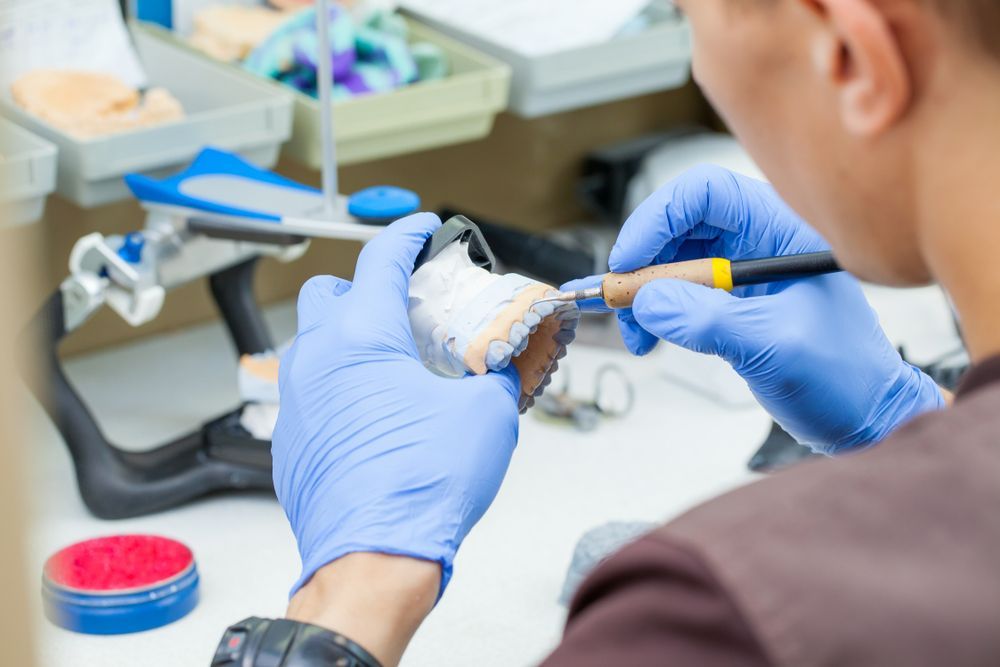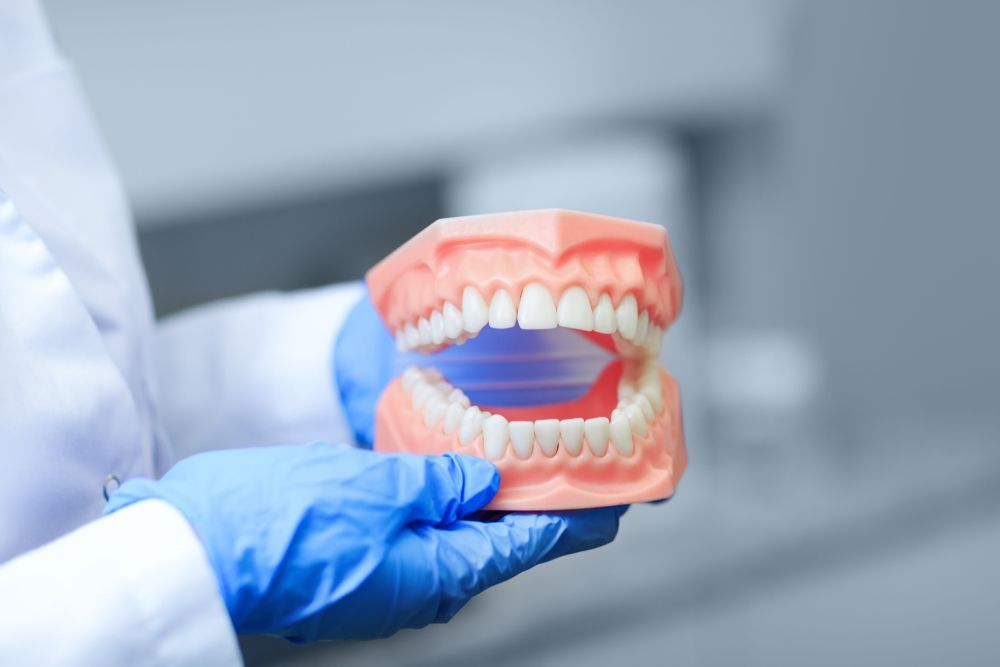8 Common Causes of Denture Pain & How to Fix It
For individuals who rely on dentures, comfort is important to everyday well-being. However, it’s not uncommon for some to experience discomfort, soreness, or persistent irritation. While occasional issues may arise, understanding what contributes to denture pain can help manage the problem.
This guide explores eight common causes of denture pain, alongside possible ways to reduce discomfort. The information provided is general in nature and should not be considered a substitute for personalised care or assessment.
1. Poor Fit Leading to Pressure Points
One of the most common reasons for denture pain is an improper fit. Dentures that don’t align properly with the gums or jaw structure may shift or create uneven pressure, leading to sore spots and friction.
Over time, natural changes in the mouth can affect how dentures sit, and what once felt fine may now be irritating.
What to look for:
- Dentures that rock or feel unstable when talking or chewing
- Soreness or swelling in specific areas of the gum
- Clicking noises during speech
What may help:
- Speaking with a prosthetist about adjustments or relining
- Regular reviews to assess how the denture fits over time
- Avoiding DIY fixes, which may damage the denture or worsen the fit
2. Gum Irritation From Prolonged Wear
Wearing dentures continuously, especially overnight, can strain the gum tissues. Without a break, the tissues may become inflamed or sore due to pressure and reduced exposure to air.
Allowing gums to rest is an important aspect of daily denture care.
Signs to be aware of:
- Redness or puffiness under the denture
- A feeling of heat or tightness in the gums
- Lingering discomfort that improves when dentures are removed
-
Suggested actions:
- Remove dentures overnight unless otherwise advised
- Keep them moist when not in use, using a suitable cleaning solution or water
- Follow a daily cleaning routine to reduce the build-up of bacteria and debris
3. Pressure From Food Trapped Beneath Dentures
Trapped food particles, especially under partial dentures, can cause inflammation and discomfort. Hard or fibrous foods are more likely to become lodged and may press into the soft tissue, creating painful pressure points.
Common triggers:
- Small seeds or grains that slip under the base
- Tough or chewy food that shifts the denture slightly
- Buildup of debris not removed during cleaning
Care tips:
- Rinse dentures after meals to remove loose particles
- Use a soft-bristled brush for daily cleaning
- Consider the fit and retention of the denture if food regularly gets trapped
4. Changes in Jaw Bone Structure
Jawbone resorption, a natural process that occurs after tooth loss, gradually alters the shape of the bone over time. This can change how dentures fit, leading to new points of friction or instability.
Even when dentures initially fit well, changes in the underlying bone may lead to discomfort in the future.
Signs this may be occurring:
- Dentures that once fit comfortably begin to shift or feel loose
- An increase in soreness after eating or speaking
- Visible shrinking of the gum line
Ways to manage:
- Periodic assessments to evaluate changes in mouth shape
- Discussing options such as denture relines or adjustments
- Avoiding overuse of adhesive to compensate for fit issues
5. Fungal or Bacterial Build-Up (Denture Stomatitis)
When dentures are not cleaned properly or worn too long without removal, bacteria or fungi, such as Candida, can grow in the moist environment beneath them. This can lead to redness, irritation, or a burning sensation in the affected area.
This condition is commonly referred to as denture stomatitis.
Typical symptoms:
- Red patches or a glossy appearance under the denture
- Burning or itching sensations
- A foul or metallic taste in the mouth
Helpful hygiene practices:
- Soak dentures daily in a suitable cleaning solution
- Brush the gums, tongue, and palate each day
- Allow time for the gums to recover without the denture in place
6. Uneven Bite Pressure
If dentures are not evenly balanced, one area may bear more force when chewing. This uneven bite can lead to the formation of pressure sores or cause the denture to feel uncomfortable or misaligned.
A balanced occlusion supports comfort and helps distribute pressure across the denture base.
Things to observe:
- Soreness that appears after eating harder foods
- Difficulty chewing on one side more than the other
- A rocking or unstable feeling during use
Potential solutions:
- Assessment of bite alignment by a prosthetist
- Minor adjustments to the occlusal surface of the denture
- Avoidance of hard or sticky foods until adjustments are made
7. Allergic Reactions to Denture Materials
Individuals may sometimes be sensitive to certain materials used in the denture base or metal framework. Allergic responses can lead to discomfort, inflammation or even minor ulceration.
Although uncommon, material sensitivity is a factor worth considering if pain is persistent and unexplained.
Possible symptoms:
- Itching or burning sensation beneath the denture
- Persistent redness that does not improve with rest
- Localised swelling or rash-like irritation
What might be considered:
- Discussing alternative materials with a qualified provider
- Observing changes when switching to hypoallergenic cleaning products
- Avoiding over-the-counter liners or adhesives not intended for daily use
8. Wear & Tear of Dentures Over Time
Just like any frequently used item, dentures wear down with time. The acrylic base may thin, or the artificial teeth may flatten with use, leading to discomfort or inefficient chewing.
Wear also affects how the denture interacts with the surrounding soft tissues and, if not addressed, can lead to long-term strain.
Indications of wear:
- Reduced chewing efficiency or flattened tooth surfaces
- Hairline cracks or discolouration in the denture base
- Denture that no longer feels secure despite adhesive use
How to respond:
- Regularly check for visible wear or changes in how they feel
- Discuss the expected lifespan of your dentures with your provider
- Schedule reviews if discomfort increases or performance changes
Need Support with Your Dentures?
Multiple factors influence denture comfort, from daily cleaning habits and overnight routines to long-term changes in gum and bone structure. While occasional soreness may occur, persistent pain should never be ignored. Always seek individual guidance before making changes to your care routine.
At The Peaks Denture Clinics, we offer a range of denture services in Katoomba, including full and partial dentures, immediate dentures, digital dentures, denture repairs, relining, and implant overdentures. Our team is dedicated to providing personalised care tailored to your individual needs. Visit our denture clinic in Katoomba today.

